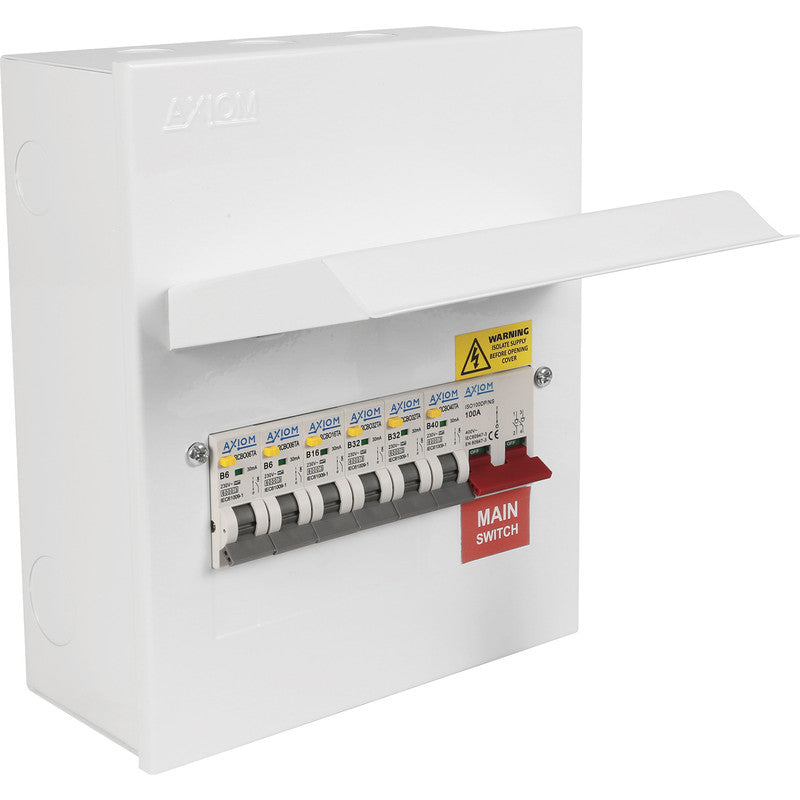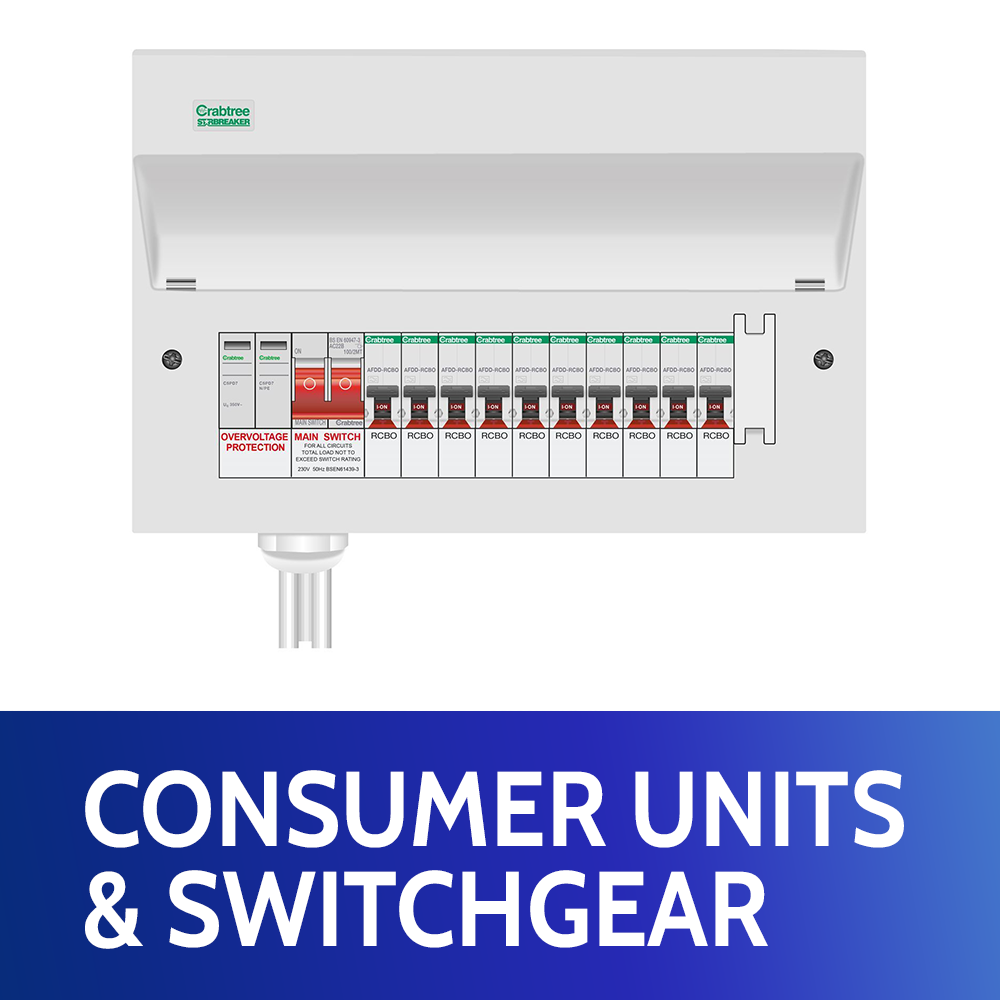Understanding the Conveniences of RCBO CONSUMER UNITS for Modern Homes
Understanding the Conveniences of RCBO CONSUMER UNITS for Modern Homes
Blog Article
The Function of Customer Systems in Efficient Power Management Solution
Customer systems are indispensable to efficient power administration systems, offering as the main distribution points for electrical power within structures. The development of smart innovations has additionally boosted their functionality, permitting for real-time information monitoring and nuanced energy usage evaluation.
Understanding Customer Devices

Comprehending the duty of customer units begins with recognizing their important function in guarding electrical systems. By separating mistakes within details circuits, customer systems avoid widespread blackouts and prospective fire dangers. This seclusion is accomplished with using circuit breakers that journey or integrates that impact when a fault is identified, thus cutting off the electric circulation to the impacted circuit.
Additionally, customer devices facilitate the orderly distribution of power, improving the effectiveness of power use. They permit the organized monitoring of electric loads, which can be especially vital in commercial and commercial setups where demand can rise and fall significantly. Correctly maintained consumer systems add to the long life of electrical systems and aid in reducing downtime triggered by electric failings, inevitably sustaining the smooth procedure of energy-dependent centers.
Smart Technologies Assimilation

A vital advantage of wise customer systems is their ability to take advantage of advanced algorithms and artificial intelligence for predictive analytics. This allows for preemptive changes based upon use patterns, weather prediction, and various other variables, substantially raising general effectiveness. Clever consumer devices facilitate demand response programs, where energy usage can be dynamically readjusted during top periods to stabilize the grid and lower costs.
The assimilation of renewable power sources, such as solar and wind, is additionally streamlined via wise consumer devices. By wisely taking care of the intermittency of these resources, these systems ensure a trusted and balanced energy supply. In addition, wise consumer units enhance individual interaction by providing thorough understandings and remote control abilities through mobile applications, cultivating an extra aggressive strategy to power conservation and sustainability.
Tracking Power Intake
Structure on the capacities of smart modern technologies integration, monitoring power consumption ends up being a vital emphasis within energy monitoring systems. Reliable monitoring functions as the structure for recognizing energy inefficiencies and executing restorative procedures. By leveraging advanced metering infrastructure (AMI), real-time information on energy usage can be collected at granular degrees, offering important understandings into intake patterns and peak need periods. This data-centric strategy enables both consumers and energy supervisors to make enlightened choices focused on lowering waste and improving general performance.
Smart meters and Net of Things (IoT) devices play an essential role in this monitoring procedure. These devices can track power usage in real-time, sending information to centralized systems for evaluation. The gathered information is then refined via innovative formulas to detect abnormalities, forecast useful site future consumption, and suggest optimization strategies. In addition, cloud-based remedies provide scalable platforms for keeping and examining large datasets, assisting in remote surveillance and control.
The integration of these modern technologies not just equips customers with comprehensive information regarding their power usage however likewise supports energy carriers in managing tons circulation better. Eventually, exact and continuous tracking is vital for attaining power performance, expense financial savings, and sustainability goals within energy monitoring systems.
Optimizing Home Appliance Use

One efficient method includes determining peak and off-peak hours to change energy-intensive tasks, such as laundry or dishwashing, to times when energy demand is lower. This not only lessens strain on the grid yet additionally profits from reduced energy tariffs. Furthermore, integrating artificial intelligence formulas permits predictive upkeep, making sure home appliances operate at optimum performance and extending their lifespan.
Energy administration systems can additionally include user-specific choices and behaviors to tailor home appliance usage routines. For instance, smart illumination systems can readjust illumination based on tenancy and all-natural light availability, while heating and cooling systems can preserve comfort levels without extreme power usage.
Promoting Sustainability
Advertising sustainability within energy monitoring systems entails not just boosting effectiveness but likewise promoting environmentally liable techniques. Consumer units are important to this process, as they provide real-time information and control systems that allow customers to check and minimize their energy consumption. By leveraging innovative technologies, consumer Continued devices can recognize energy-saving opportunities and help with the integration of renewable resource sources like solar and wind power.
One essential element of promoting sustainability is educating consumers on the advantages of liable power use. With comprehensive insights offered by customer systems, users can make educated choices that decrease their carbon footprint. These devices can recommend ideal times for operating high-energy home appliances based on grid demand and eco-friendly power availability, thereby minimizing reliance on fossil fuels.
Moreover, consumer devices sustain the fostering of smart grid technologies, which enhance the total effectiveness and reliability of power circulation. By making it possible for two-way communication between consumers and energy carriers, these their website systems can dynamically change to energy needs, decreasing waste and advertising the use of sustainable energy methods.
Verdict
Consumer systems, as indispensable elements of power administration systems, significantly improve electric security and effectiveness within buildings with circuit defense and wise modern technology assimilation. Furthermore, the unification of eco-friendly energy resources advertises sustainable practices, contributing to minimized total energy usage and reduced carbon impacts.
Advancements in smart modern technologies have transformed the abilities of power administration systems, especially with the assimilation of smart customer units.Building on the capacities of clever innovations assimilation, monitoring energy usage comes to be a critical focus within power management systems.Efficient device use optimization is a vital element of energy administration systems, aiming to improve effectiveness and minimize unnecessary energy consumption.Consumer units, as essential components of energy management systems, substantially improve electrical safety and efficiency within buildings through circuit defense and clever modern technology combination. Additionally, the consolidation of renewable power sources promotes sustainable practices, adding to lowered general energy usage and reduced carbon footprints.
Report this page